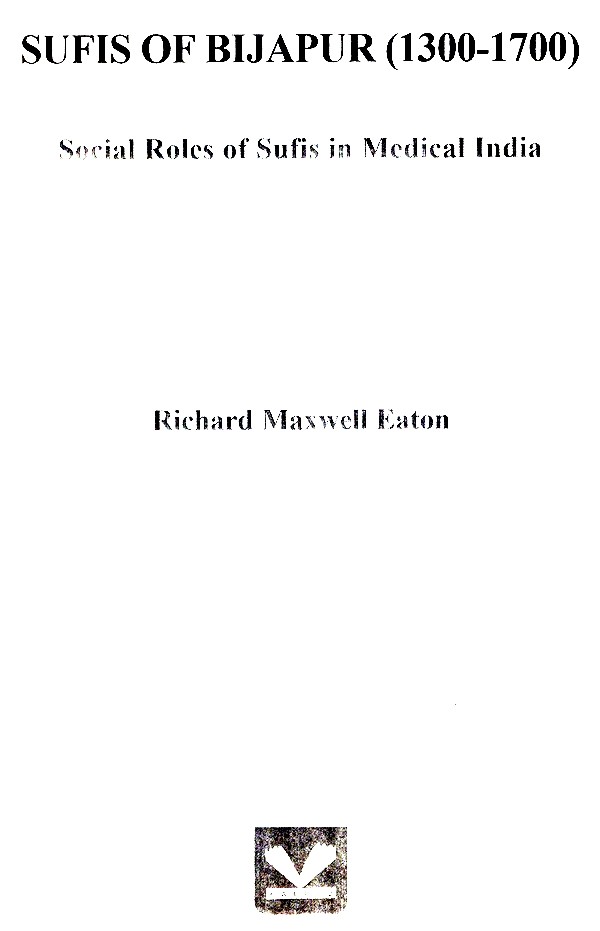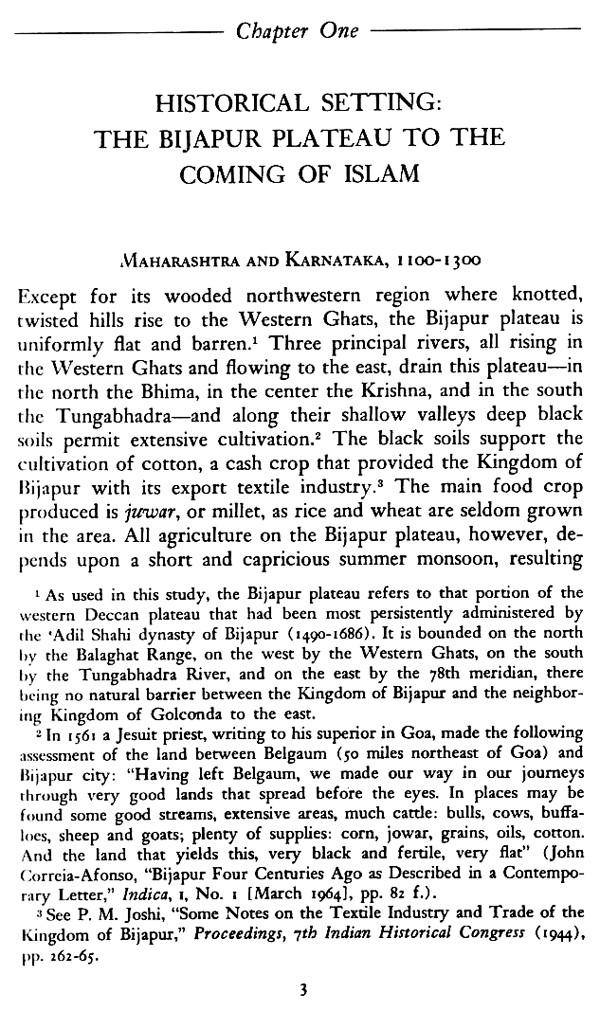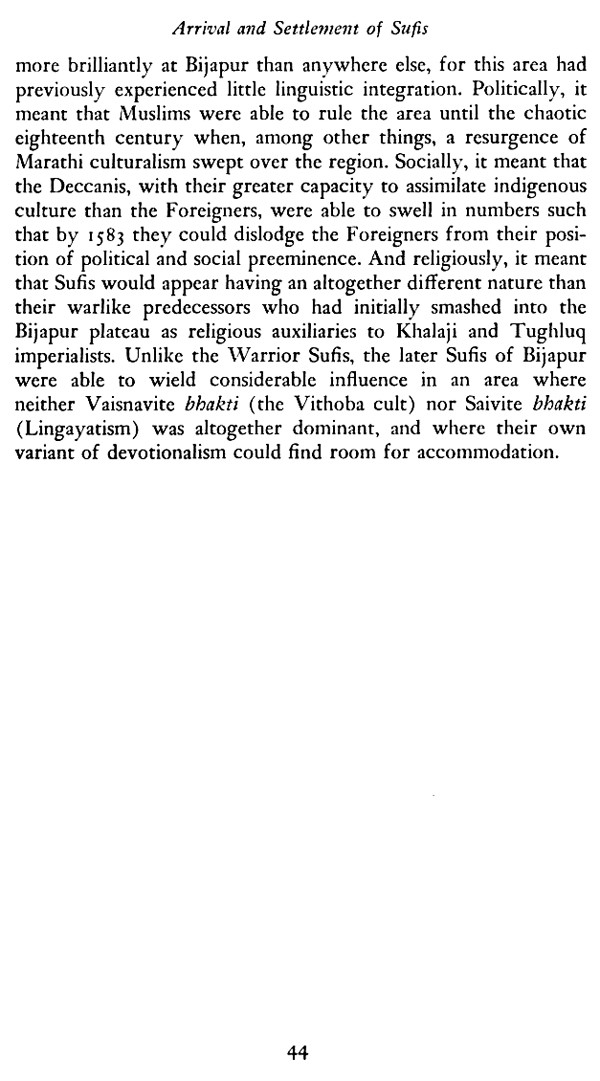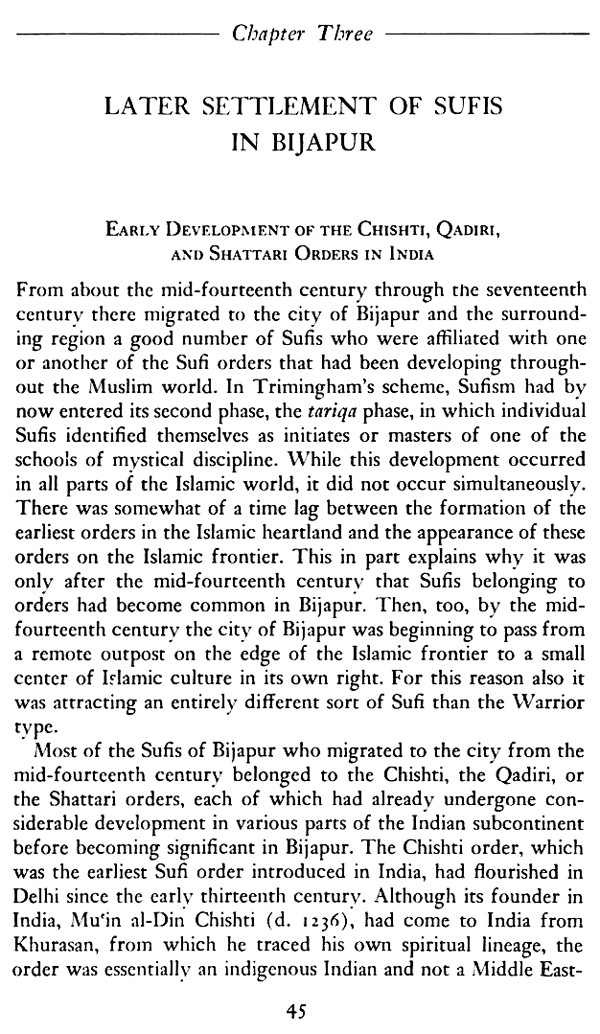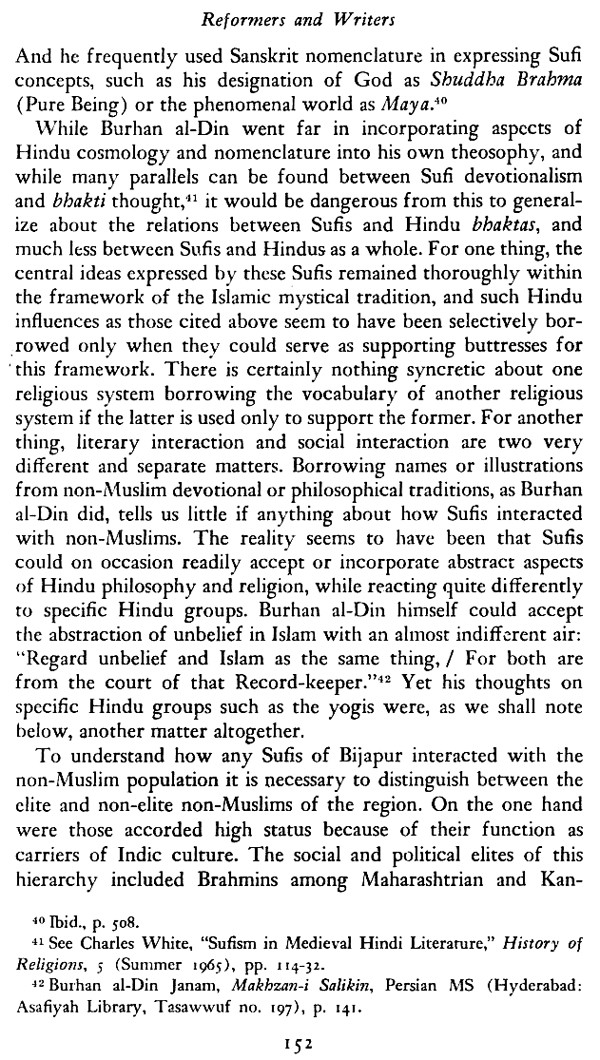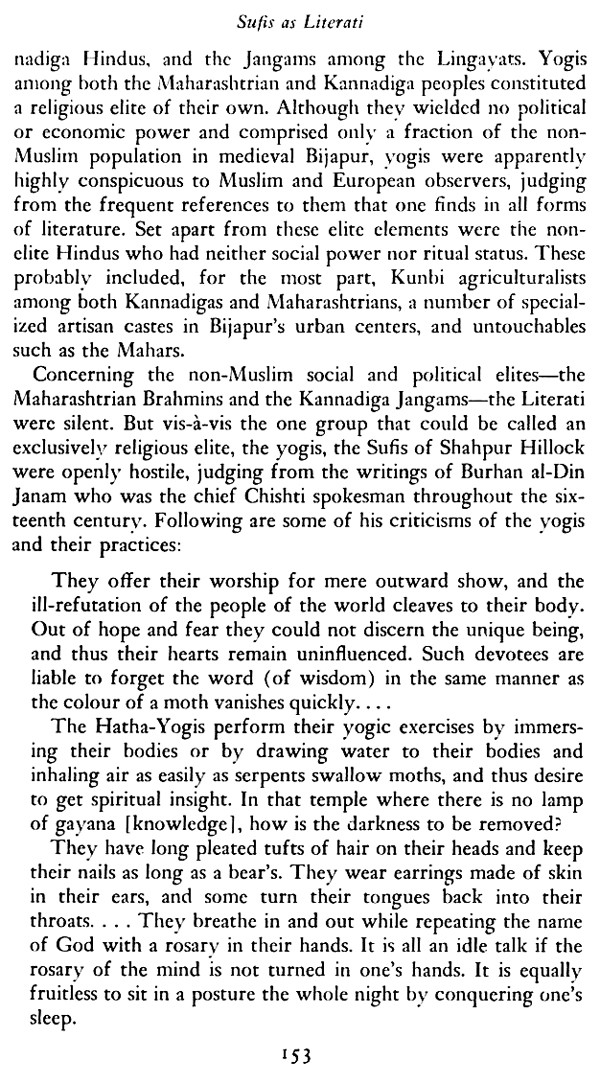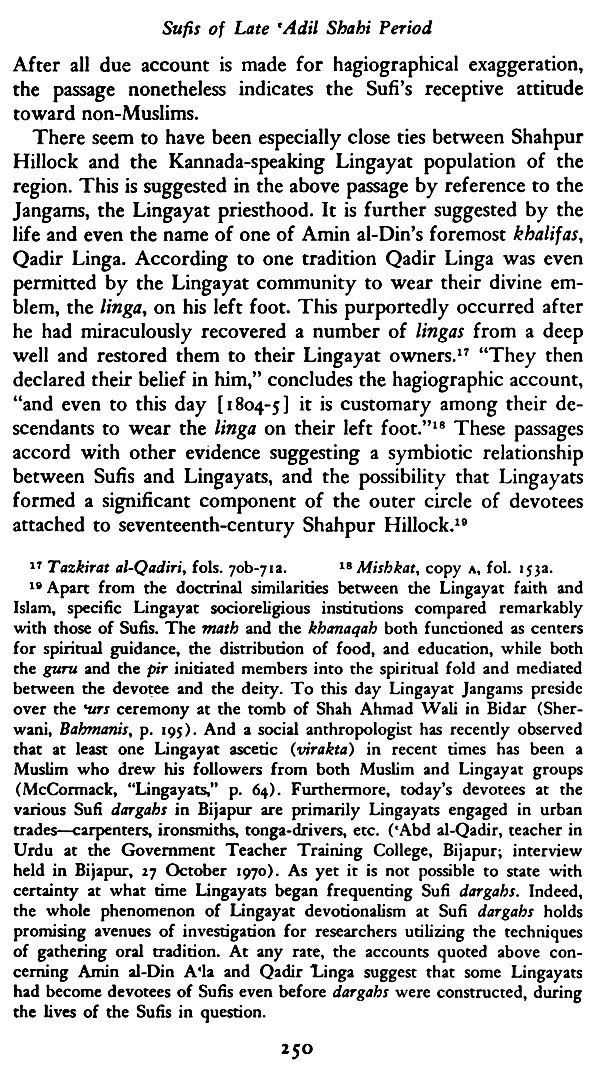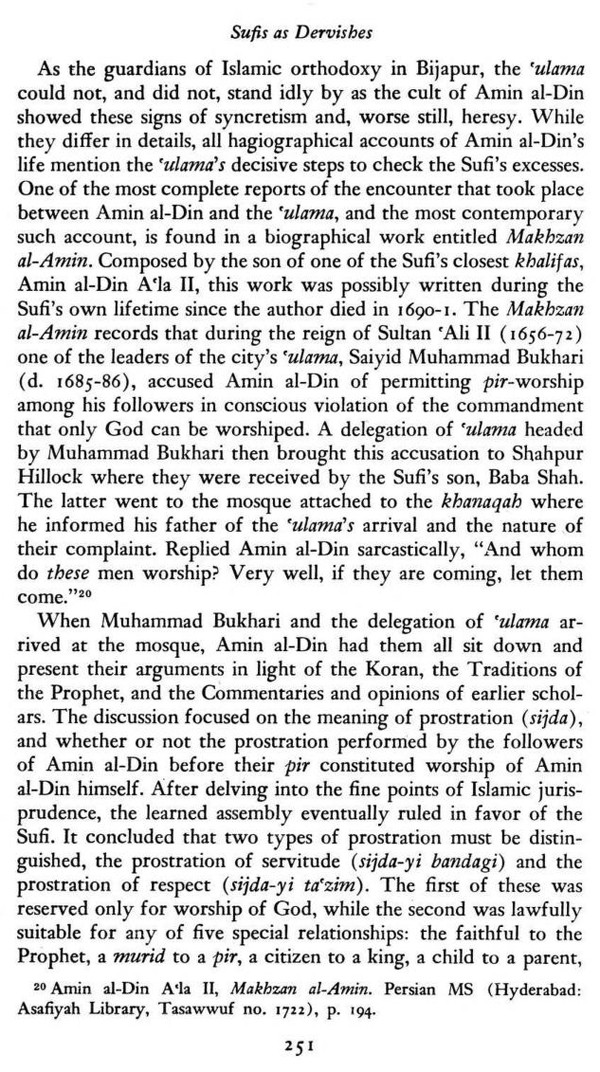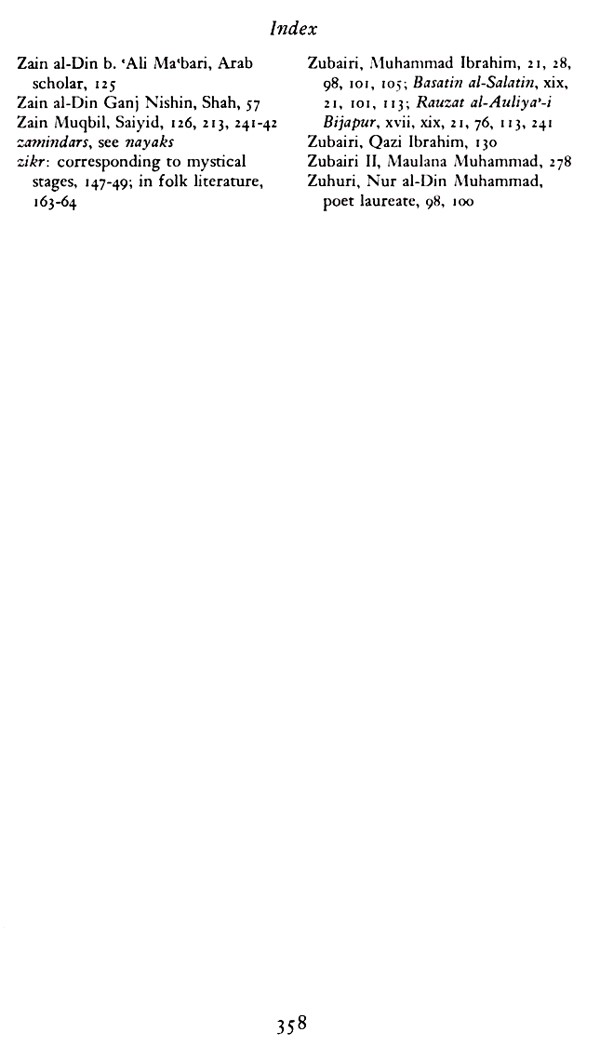Preface This study seeks to identify the social roles played by the Sufis, heirs to a tradition of Islamic mysticism, who lived in the medieval city-state of Bijapur in South India. The Sufis examined in this work have been regarded as an integral part of an evolving society in which an Indo-Muslim ruling establishment was super- imposed on an indigenous non-Muslim population. Within this framework the present study explores not only how Sufis of various social types interacted with the main components of the society in which they lived--the upholders of Islamic orthodoxy, the court, and the non-Muslim population-but also how these types evolved and changed over time. The shaping of this study into its present form is attributable both to the kinds of sources that I uncovered in the course of my research and also to the many individuals and institutions that have, in countless ways, guided and assisted my studies and research through their various phases. An explanation of these sources and an acknowledgment of my gratitude to these individuals and institutions are therefore in order.
Introduction In 1890 an English archeologist for the government of India, Henry Cousens, described his trip across the barren, flat Deccan plateau and his arrival at the ruined city he was about to survey. "Not many years ago," wrote Cousens, the way was not altogether free from Maratha freebooters; and when the city was reached it was found a lonely and deserted extent of ruins, the haunt of the jackal, the wolf, and the hyaena, and an elysium of bats and owls. Very few families lived within the walls: it had remained a desolate waste from the time of its fall to within the last half century.
The magnificent palaces, mausoleums, mosques, and other structures surveyed by Cousensonce graced the medieval city of Bijapur, capital of the kingdom of the same name." At its height in the mid-seventeenth century the Kingdom of Bijapur was, after the Mughal Empire, one of the largest and most powerful states of the Indian subcontinent. In 1686, however, the Mughal Empire itself swallowed up this Deccan kingdom, which precipitated the city's rapid decline into the ruined specter Cousens described.
**Contents and Sample Pages**
